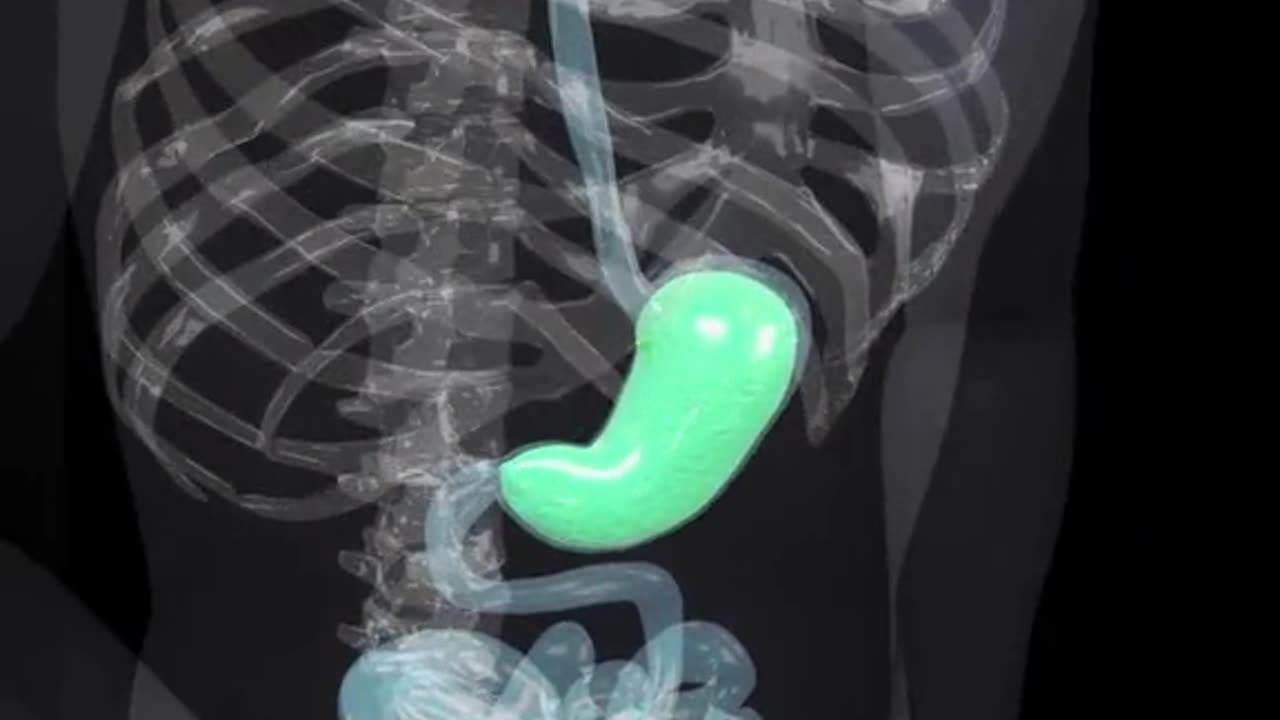Premium Only Content

This is what happens to your body when you vomit.
Regurgitating, or emesis, is an intricate interaction that includes a few physiological changes:
Setting off the Reflex: Heaving is many times set off by the cerebrum's spewing focus, which answers different boosts like poisons, diseases, or aggravations. The trigger can be physical (like movement disorder) or mental (like intense pressure).
Compulsory Compressions: When the heaving reflex is started, the stomach and abs contract strongly. These compressions increment stomach strain and push the stomach contents up.
Opening of the Esophageal Sphincter: The lower esophageal sphincter, a muscle that ordinarily keeps the stomach contents from streaming once more into the throat, briefly unwinds, permitting the stomach items to move into the throat.
Removal of Items: The items in the stomach, which might incorporate food, fluid, and stomach related acids, are ousted through the mouth. This is in many cases joined by a spewing sensation and a solid, compulsory desire.
Post-Regurgitating Impacts: In the wake of spewing, you might encounter sickness, drying out, and a sensitive throat because of the acidic idea of stomach contents. The body may likewise feel debilitated or exhausted.
Body Responses: During and in the wake of spewing, the body can lose liquids and electrolytes, prompting lack of hydration. The stomach coating could likewise become disturbed from the acidic items.
In outline, retching is a defensive reflex that frees the group of hurtful substances. It includes a planned exertion between the cerebrum, muscles, and gastrointestinal framework to oust stomach contents and can leave the body feeling briefly depleted and got dried out.
-
 36:50
36:50
Uncommon Sense In Current Times
13 hours ago $0.70 earnedHomicide Detective Finds God While Investigating True Crime | J. Warner Wallace
20.1K13 -
 1:00:51
1:00:51
Trumpet Daily
21 hours ago $3.77 earnedAmerica’s Shameful Foreign Policy - Trumpet Daily | Apr. 24, 2025
17.1K12 -
 17:18
17:18
VSOGunChannel
16 hours ago $0.66 earnedDNT HYDRA- A Thermal Sight You Can Actually Afford
16.2K5 -
 10:10
10:10
Mrgunsngear
14 hours ago $7.68 earnedNew Trijicon MRO SD - The Best American Made Red Dot Optic?
54.7K11 -
 13:42
13:42
SantaSurfing
17 hours ago4/24/2025 - Part 1 on Endless Frontiers Efficient & Powerful Tesla Homes! Revolutionary!
73.1K56 -
 12:19
12:19
T-SPLY
19 hours agoDemocrats Start Economic War With El Salvador!
55.1K40 -
 3:14:44
3:14:44
TimcastIRL
13 hours agoDemocrat RAIDED After He's CAUGHT Harboring TERRORIST TdA Member, Wife ARRESTED
249K213 -
 2:42:29
2:42:29
RiftTV/Slightly Offensive
13 hours ago $26.69 earnedBabylon Bee Mocks Christianity in Con Inc War on "Christ is King" | Guest: Pastor Joel Webbon
96K96 -
 2:17:31
2:17:31
Laura Loomer
12 hours agoEP117: GOP Lets Radical Muslims Take Over Texas
58K87 -
 7:43:34
7:43:34
SpartakusLIVE
15 hours agoDuos w/ GloryJean on VERDANSK || #1 Most EATING Streamer
90.4K2